What You Need to Know About Air Filter Care
Are you aware that neglecting air filter maintenance can lead to higher energy bills and reduced air quality in your home? This post will cover the importance of air filter care, the types of filters available, and effective maintenance techniques. By understanding these key aspects, homeowners can improve indoor air quality, save on energy costs, and extend the life of their HVAC systems. With the right approach to air filter maintenance, individuals can tackle common household issues and create a healthier living environment.
Understanding the Importance of Air Filter Maintenance
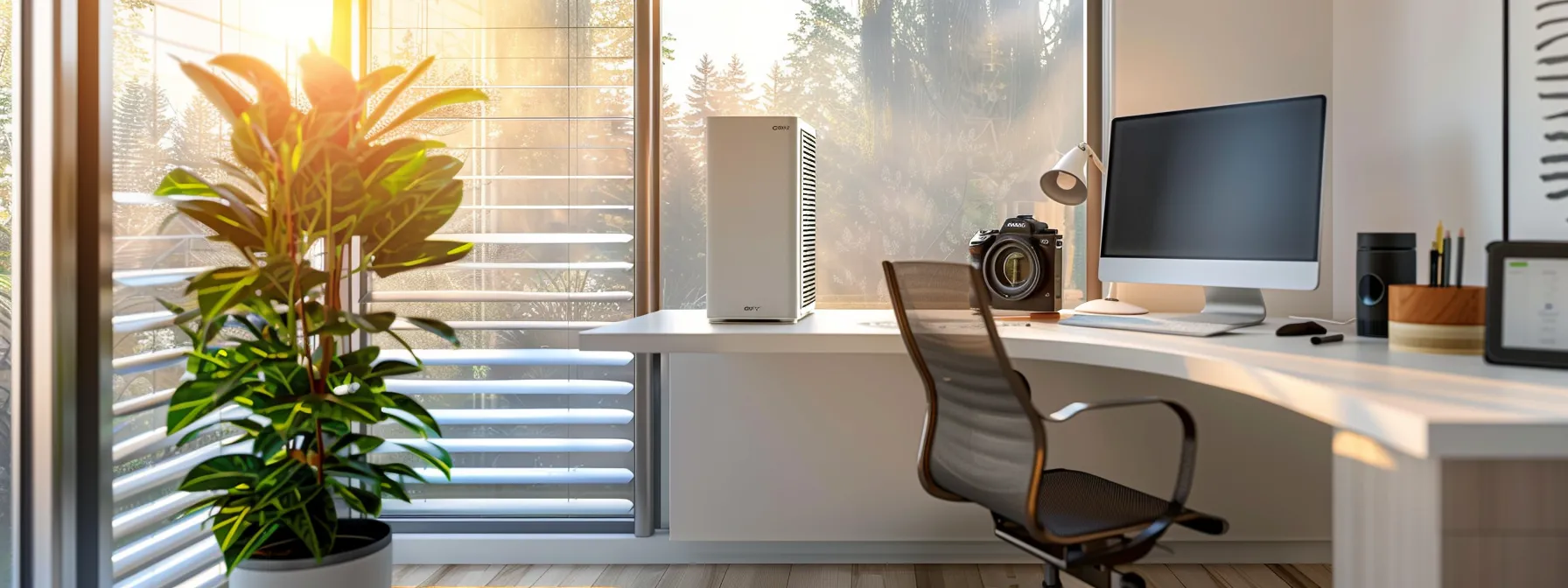
Air filters play a crucial role in maintaining indoor air quality by trapping dust, mold, and other harmful particles. Clean filters enhance energy efficiency, reducing strain on HVAC systems and lowering energy costs. Homeowners should be aware of signs of a failing air filter, such as increased allergens and potential health risks, including lung cancer. Additionally, common myths around air filter maintenance can lead to misunderstandings regarding their care and longevity.
The Role of Air Filters in Indoor Air Quality
Air filters are essential components that significantly impact indoor air quality. They function as a barrier, trapping dust and dirt particles that can otherwise circulate throughout the home, leading to respiratory issues and other health concerns. Regular inspection and maintenance of air filters are necessary to ensure that heating and cooling systems operate efficiently, reducing energy consumption and extending the engine life of HVAC units.
How Clean Filters Contribute to Energy Efficiency
Clean air filters are vital for enhancing energy efficiency in HVAC systems. When air conditioning units operate with clean filters, they experience less strain, allowing the system to use less energy while maintaining optimal heat regulation within the home. This not only leads to lower energy bills but also prolongs the life of HVAC components, preventing costly repairs and replacements.
Identifying the Signs of a Failing Air Filter
Homeowners should be vigilant for signs indicating a failing air filter, as neglect can adversely affect indoor air quality and the longevity of HVAC systems. Key indicators include increased levels of particulates, such as dust or allergens in the air, which can lead to respiratory issues. Additionally, an unusual buildup of oil or grime on the filter may suggest that it is not effectively capturing contaminants, compromising its filtration efficiency and overall system performance.
Common Myths About Air Filter Maintenance
Many homeowners hold misconceptions about air filter maintenance that can lead to increased air pollution and unnecessary expenses. One common myth is that a higher Minimum Efficiency Reporting Value (MERV) rating always ensures better air quality; however, using filters that are too restrictive can place undue strain on the compressor of HVAC systems, leading to increased energy consumption. Additionally, some believe that changing filters infrequently is sufficient, but neglecting to remove accumulated debris can compromise air filtration efficiency and pose health risks, especially during wildfire seasons when airborne contaminants are heightened.
Types of Air Filters and Their Maintenance Needs
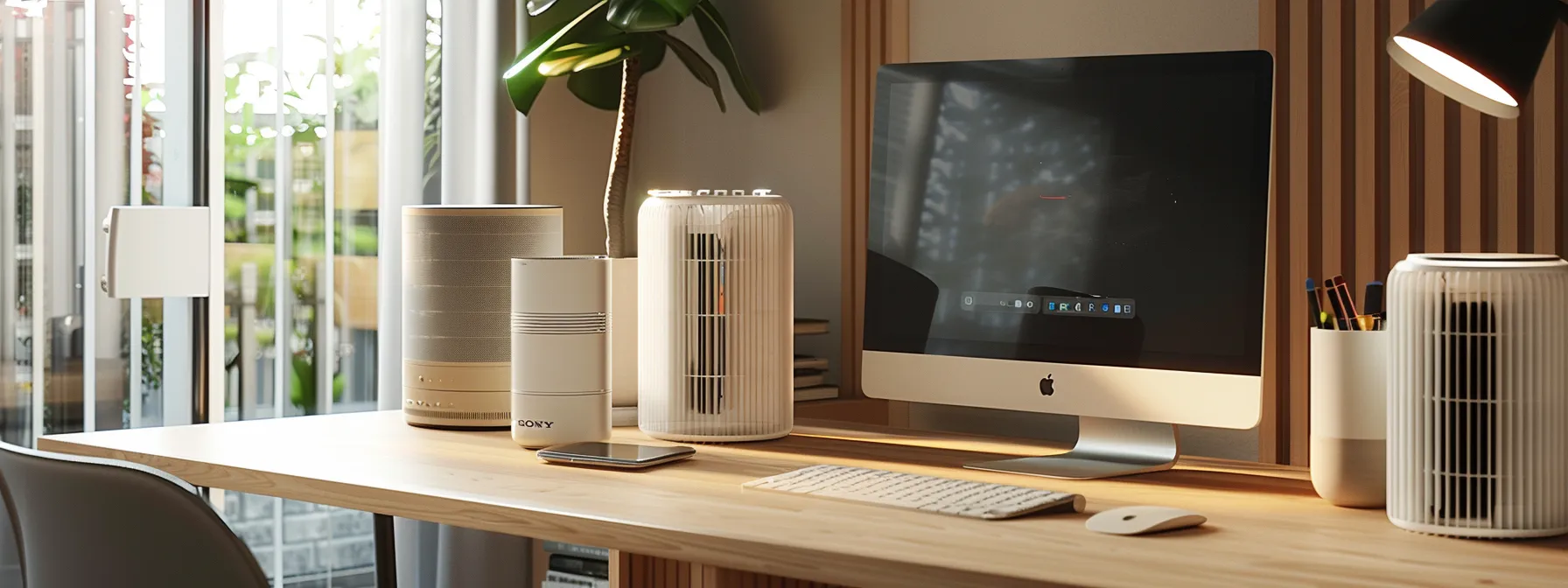
Understanding the various types of air filters is essential for effective home maintenance. This section compares HEPA, fiberglass, and electrostatic filters, highlighting their unique maintenance needs and effectiveness against allergens such as pollen, bacteria, and disease. It also discusses how environmental factors impact filter performance and provides guidance on selecting the right filter for HVAC systems, particularly for those managing asthma or respiratory sensitivities.
Comparing Different Filter Types for Home Use
When it comes to choosing air filters for home use, understanding the differences between types like HEPA, fiberglass, and electrostatic filters is essential. HEPA filters serve as effective dust collectors, capturing small particles such as dander and pollen, making them ideal for allergy sufferers. In contrast, fiberglass filters are less costly and mainly designed for larger contaminants but may require more frequent changes to prevent contamination of the evaporator coils, impacting overall system efficiency.
Key Maintenance Differences Between HEPA, Fiberglass, and Electrostatic Filters
HEPA filters are recognized for their superior ability to capture small particles, contributing significantly to improved indoor air quality; however, they require regular replacements, typically every 6 to 12 months, to maintain optimal performance. In contrast, fiberglass filters are more economical and can be changed every 1 to 3 months, depending on humidity levels and air consumption within the home, ensuring that they do not compromise the efficiency of refrigerant systems. Electrostatic filters offer a reusable option but must be cleaned monthly to remove contaminants and enhance airflow, preventing unnecessary strain on HVAC pumps while maintaining effective filtration.
Choosing the Right Air Filter for Your HVAC System
Selecting the appropriate air filter for an HVAC system is essential for maintaining air quality and maximizing efficiency. Homeowners should consider factors such as the type of condenser, the frequency of air filter maintenance, and the level of wear and tear on their systems. By choosing a filter designed for their specific needs, individuals can enhance air quality while reducing the burden on their HVAC systems, ultimately leading to lower energy costs and improved comfort in their homes. To ensure they make the best choice, homeowners can consult trusted experts or seek advice via reliable contact channels, ensuring they select the ideal filtration solution for their environment.
Environmental Factors Influencing Filter Effectiveness
Environmental factors play a significant role in air filter effectiveness and maintenance needs. When air quality is compromised due to high levels of allergens or pollutants, such as those produced by diesel engines, filters may clog more rapidly, requiring more frequent changes to avoid downtime. Moreover, inadequate ventilation can create pressure imbalances within HVAC systems, affecting overall performance and the ability of filters to capture contaminants. Homeowners should regularly assess these factors and adjust their maintenance schedules accordingly to ensure optimal filtration and air quality.
Establishing a Regular Maintenance Schedule
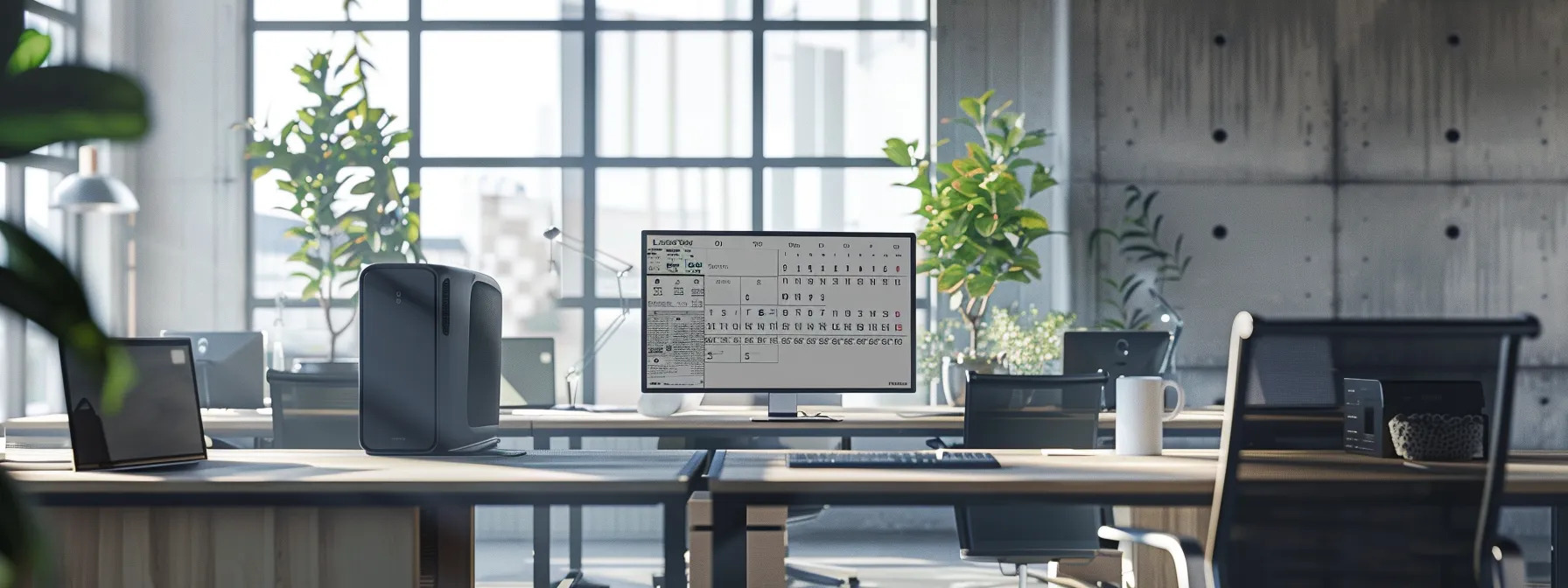
Establishing a regular maintenance schedule is essential for effective air filter care. Homeowners will learn guidelines for determining filter replacement frequency, seasonal considerations that impact care, and methods to set reminders for maintenance. Tracking air filter performance offers valuable insights into efficiency, mitigating odor issues, and reducing pollutants, ultimately enhancing productivity and machine performance.
Guidelines for Determining Filter Replacement Frequency
To determine the appropriate frequency for replacing air filters, homeowners should consider several factors that impact performance. For instance, households with pets may require more frequent changes to effectively capture particles like dander, while those using activated carbon filters designed for odor control should also monitor their condition regularly. Additionally, if an air compressor operates under heavy usage, filters might need replacement more often to maintain optimal airflow and system efficiency.
Seasonal Considerations for Air Filter Care
Seasonal changes can significantly impact air filter performance and maintenance needs. During the spring and fall, when pollen and dust levels peak, homeowners should consider checking and potentially replacing filters more frequently to ensure optimal air quality. In winter, when homes are sealed tight for warmth, increased indoor pollutants such as pet dander and dust mites necessitate regular filter inspections to maintain healthy living conditions.
How to Set Reminders for Filter Maintenance
Setting reminders for air filter maintenance is essential for ensuring consistent care and optimal performance. Homeowners can utilize digital calendars, smartphone apps, or simple notes placed in visible areas to establish a schedule that aligns with their specific replacement needs. By marking reminders for regular checks and replacements, individuals can effectively manage their air quality and maintain the efficiency of their HVAC systems, minimizing the risk of increased energy costs and health issues related to poor air filtration.
Benefits of Tracking Air Filter Performance
Tracking air filter performance provides homeowners with valuable insights into their HVAC systems’ efficiency and effectiveness. By monitoring how frequently filters need replacement, individuals can identify patterns related to air quality and energy costs, helping them make informed decisions on when to change filters. This proactive approach not only enhances indoor air quality but also contributes to the longevity of HVAC systems, ultimately preventing unexpected breakdowns and costly repairs.
DIY Air Filter Maintenance Techniques
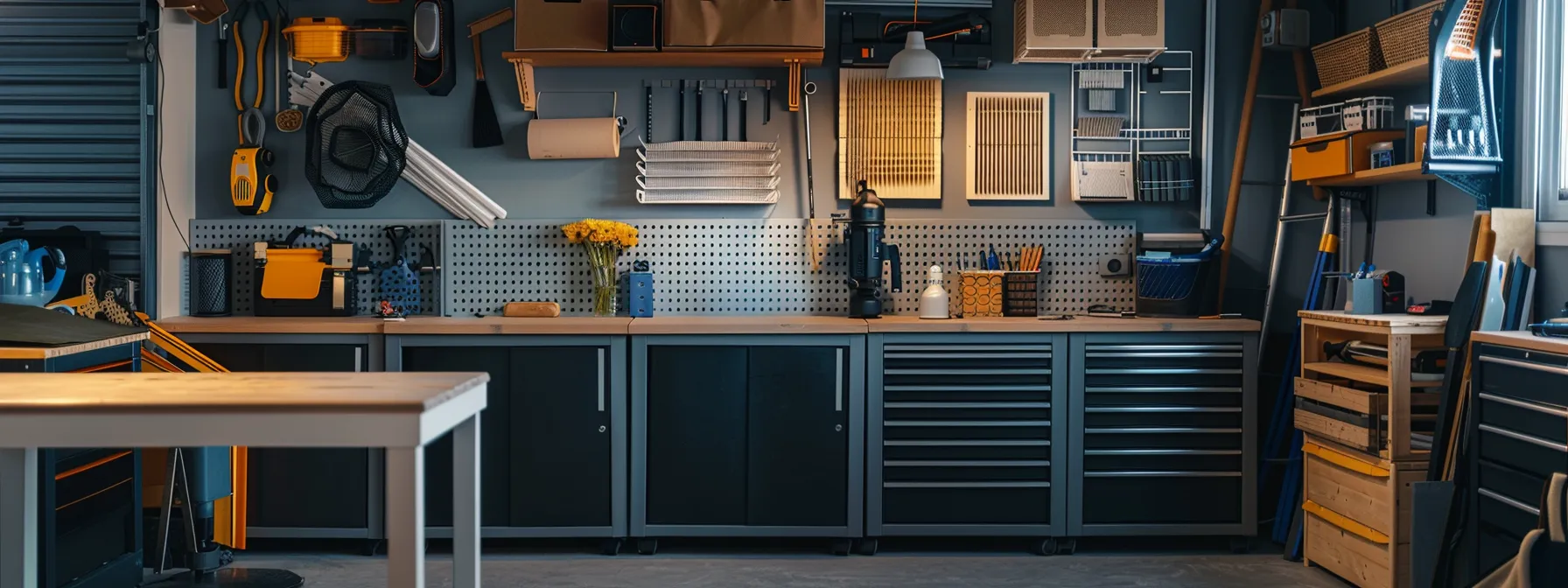
Cleaning and maintaining air filters is essential for optimal HVAC performance. This section outlines a step-by-step process for cleaning reusable filters, best practices for safely handling and replacing filters, and tools to keep on hand for effective maintenance. It also addresses common mistakes to avoid during DIY maintenance, ensuring homeowners can enhance indoor air quality and prolong system longevity.
Step-by-Step Process for Cleaning Reusable Filters
Cleaning reusable air filters is a straightforward process that can significantly enhance HVAC efficiency. First, homeowners should turn off their HVAC system to ensure safety before removing the filter. Next, they can gently vacuum the filter to remove loose dust and debris, followed by rinsing it under warm water to eliminate more stubborn particles. After the filter is thoroughly dried, it can be reinstalled, ensuring the system runs optimally while maintaining indoor air quality. Regularly cleaning reusable filters can prevent long-term damage to HVAC systems and reduce the frequency of replacement, helping homeowners save on maintenance costs.
Best Practices for Safely Handling and Replacing Filters
Homeowners should always turn off their HVAC system before handling air filters to ensure safety and prevent damage. When replacing filters, it’s important to carefully inspect the new filter for proper fit and orientation, as an incorrectly installed filter can compromise air quality and system efficiency. Wearing gloves can help keep fingers clean and avoid transferring oils or dirt onto the filter, helping to maintain optimal functionality for improved indoor air quality.
Tools and Products to Have on Hand for Maintenance
Homeowners engaged in DIY air filter maintenance should keep several essential tools and products at hand to ensure effective care. A vacuum with a brush attachment helps to remove dust and debris from reusable filters without damaging them, while warm water and a gentle detergent can assist in cleaning stubborn particles. Additionally, having gloves nearby is crucial for maintaining cleanliness and proper handling, preventing oils from transferring onto the filters and compromising their performance.
Common Mistakes to Avoid During DIY Maintenance
When performing DIY air filter maintenance, homeowners often make common mistakes that could compromise air quality. One significant error is neglecting to turn off the HVAC system before handling filters, which can lead to injuries or accidental damage to the units. Additionally, using excessive force when cleaning filters or failing to properly check for a snug fit when replacing them can lead to decreased efficiency and potential air leaks, ultimately reducing the overall effectiveness of the HVAC system.
Professional Air Filter Maintenance Services

Professional air filter maintenance services offer comprehensive solutions that enhance HVAC efficiency and indoor air quality. Homeowners can expect thorough cleaning procedures, personalized service assessments, and knowledgeable technicians. Evaluating the benefits of professional cleaning against DIY efforts can help determine the best approach. Regular consultations regarding the frequency of hiring professionals and key questions to ask when selecting a maintenance service are crucial for informed decisions.
What to Expect From a Professional Filter Service
Homeowners seeking professional air filter maintenance services can expect a thorough evaluation of their HVAC systems, ensuring enhanced efficiency and improved indoor air quality. Technicians typically provide detailed cleaning procedures, removing dust, debris, and contaminants that standard DIY approaches may miss. Additionally, they offer expert insights on filter selection and maintenance schedules tailored to individual household needs, helping homeowners make informed decisions for optimal air quality management.
Evaluating the Benefits of Professional Cleaning vs. DIY
When assessing the advantages of professional air filter maintenance compared to DIY efforts, homeowners may find that professional services offer a level of expertise and thoroughness that enhances overall HVAC system performance. Trained technicians not only provide detailed cleaning that eliminates hard-to-reach contaminants but also offer tailored recommendations based on individual system needs and environmental factors. This expertise can lead to improved indoor air quality and long-term savings on energy costs, making professional air filter cleaning a compelling choice for those looking to optimize their home’s comfort and efficiency.
How Often Should You Consider Hiring a Professional?
Homeowners should consider hiring a professional for air filter maintenance at least once a year, or more frequently if they have pets or live in an area with high pollen levels. Engaging a professional service ensures that filters are cleaned thoroughly and replaced as needed, which may not be achievable through DIY methods alone. Regular professional assessments can help identify potential issues with the HVAC system, enhancing overall indoor air quality and efficiency while extending the life of the equipment.
Questions to Ask When Selecting a Maintenance Service
When selecting a professional air filter maintenance service, homeowners should inquire about the qualifications and experience of the technicians who will handle their HVAC systems. Understanding the cleaning methods employed, such as whether they use specialized equipment for thorough filter cleaning, can also impact the effectiveness of the service. Additionally, asking about maintenance schedules and how the service tailors its approach to individual home needs ensures that clients receive the most suitable and effective air quality management for their environment.
Long-Term Benefits of Proper Air Filter Care
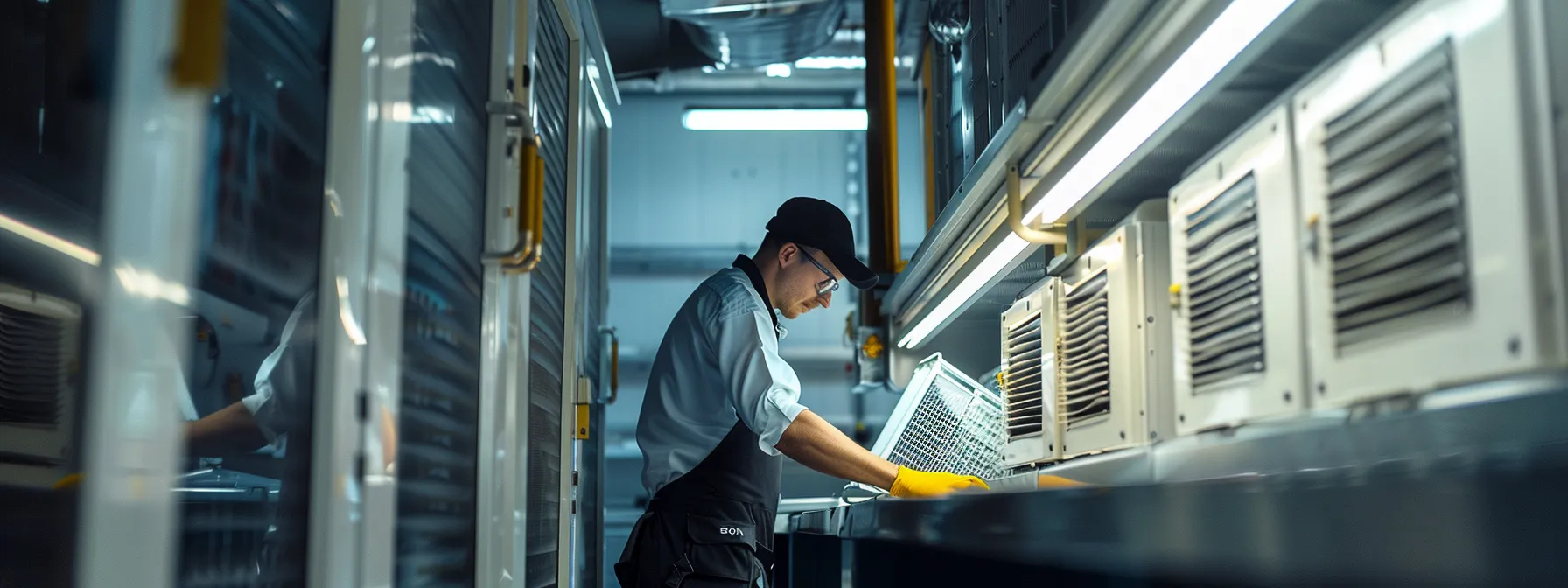
Proper air filter care delivers significant long-term advantages, encompassing cost savings through improved HVAC efficiency and enhanced health from cleaner air. Maintaining air filters can also extend the lifespan of HVAC systems while promoting environmental sustainability. This section will explore each benefit, illustrating how effective maintenance practices contribute to overall home comfort and efficiency.
Cost Savings Through Improved HVAC Efficiency
Through regular air filter maintenance, homeowners can achieve significant cost savings by ensuring their HVAC systems operate at peak efficiency. Clean filters reduce the workload on heating and cooling units, leading to lower energy consumption and decreased utility bills. By investing time in filter care, individuals not only enhance indoor air quality but also extend the lifespan of their HVAC equipment, minimizing costly repairs and replacements down the line.
Impact on Health and Well-Being From Cleaner Air
Maintaining clean air filters significantly improves indoor air quality, leading to better health and overall well-being for homeowners. Clean air reduces exposure to harmful pollutants and allergens, which can be especially beneficial for individuals with respiratory issues or allergies. By investing in regular air filter care, homeowners can create a healthier living environment that supports their family’s comfort and minimizes health risks associated with poor air quality.
Extending the Lifespan of Your HVAC System
Proper air filter care plays a significant role in extending the lifespan of HVAC systems. When filters are clean, airflow improves, allowing heating and cooling units to operate efficiently without excessive strain. This proactive maintenance not only enhances system performance but also minimizes the likelihood of costly repairs, ultimately contributing to a longer operational life for HVAC equipment.
How Maintenance Influences Environmental Sustainability
Proper air filter maintenance plays a critical role in promoting environmental sustainability by enhancing the efficiency of HVAC systems, which leads to reduced energy consumption. When filters are clean, HVAC units operate more effectively, decreasing the carbon footprint associated with energy use. Furthermore, by ensuring optimal air quality and reducing pollutants, homeowners contribute to a healthier environment, supporting overall community well-being and sustainability initiatives.
Conclusion
Proper air filter care is essential for maintaining indoor air quality, enhancing HVAC efficiency, and promoting overall health. Homeowners must recognize the importance of regular maintenance, timely filter replacements, and understanding different filter types to avoid costly repairs and health risks. Establishing a routine for air filter inspections and replacements leads to cleaner air and reduced energy costs. Ultimately, prioritizing air filter care directly contributes to a comfortable, sustainable living environment for families.
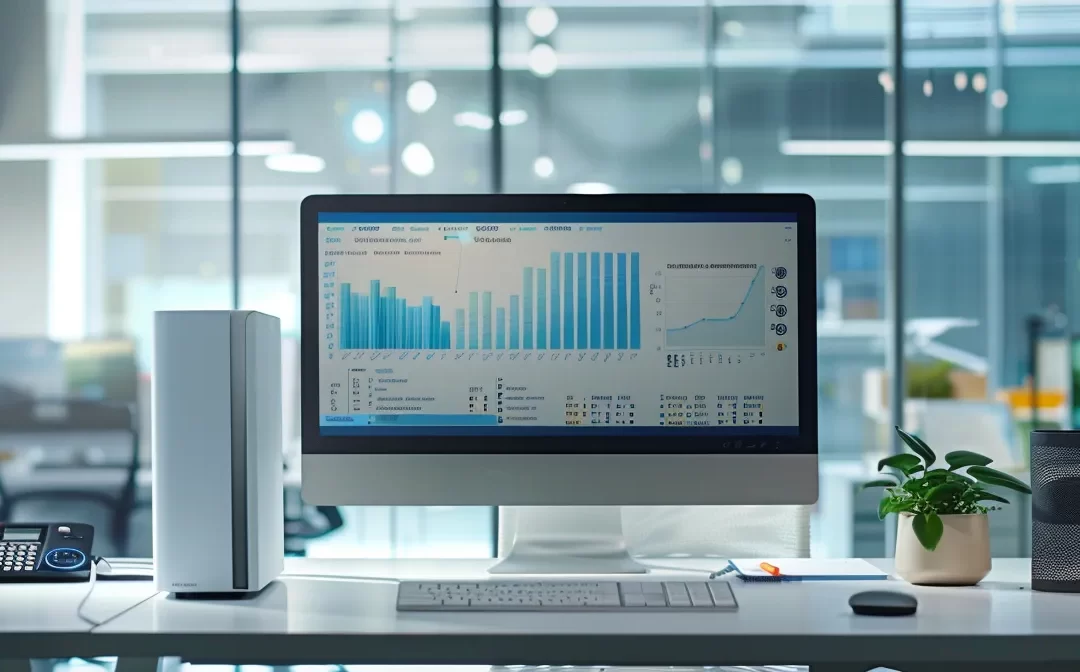
Recent Comments